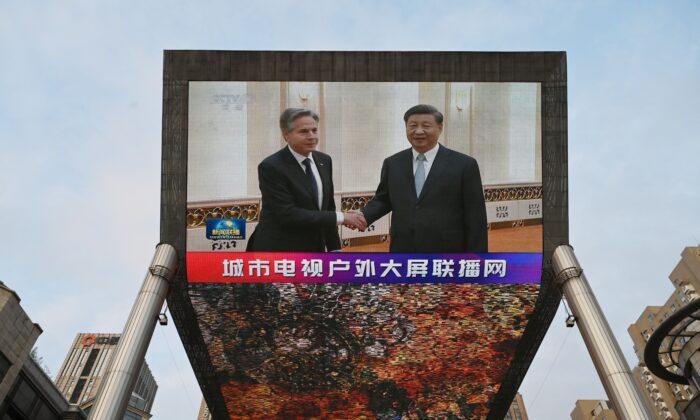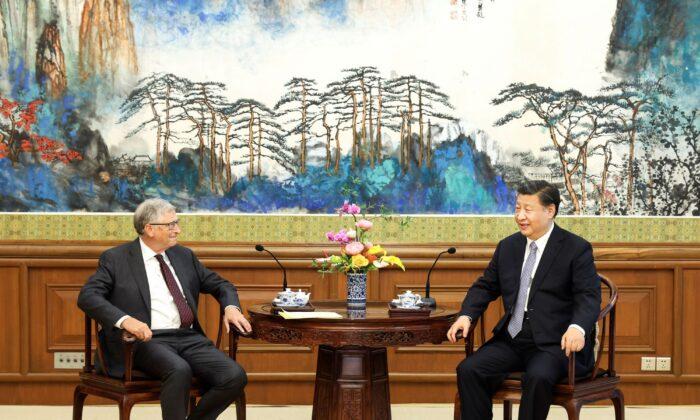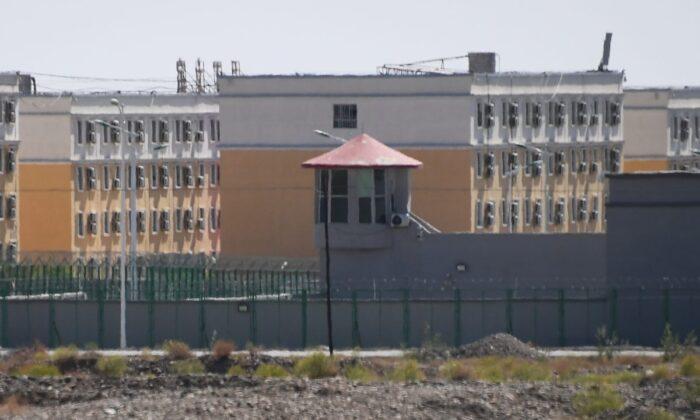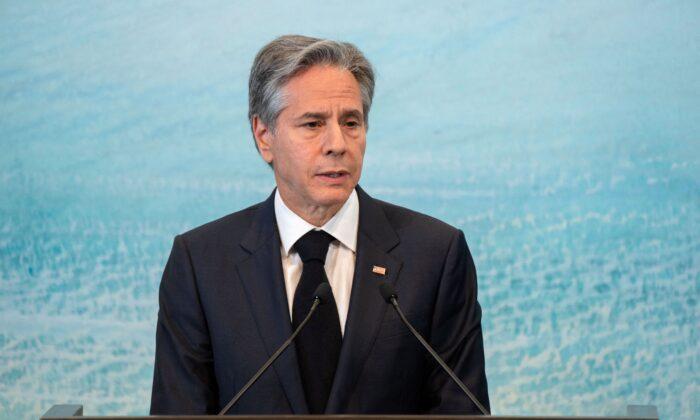As Chinese leader Xi Jinping looks set to secure a third five-year term as CCP leader during the party’s 20th National Congress in October, the following period will see more competition and confrontation between the United States and China, according to China expert and author James Gorrie.
“I don’t see great cooperation … I don’t think that’s going to mark our relationship in the foreseeable future. I think we’re much more along the lines of competitive and adversarial,” Gorrie told the “China in Focus” program on NTD news, The Epoch Times’ sister media.
He pointed to the fact that China and Russia have proclaimed a friendship without limits, saying: “[China] coordinated with Russia on that invasion. And they’re doing a lot of coordination on energy on food and currency.”
China’s Internal Problems
Gorrie further took note of the fact that the Chinese economy is not in good shape.“China has big problems in terms of their economy. Their real estate sector is in a depression. Unemployment among the youngest is now over 20 percent, which is huge. The national average is around five and a half percent,” he said.
“So there’s some large issues that need to be addressed,” Gorrie stressed.
According to the expert, the Chinese regime’s zero-COVID policy has exerted a devastating impact on the country.
“It’s just been so oppressive on their own people. You have tens of millions of people not earning money, not not going to work, supply chain disruptions,” Gorrie said.
In his opinion, that furthered the trend of nearshoring which had started before the outbreak of the COVID-19 pandemic.
“That trend was created by China. China’s labor costs are higher, their IP theft is rampant,” he explained.
“Europeans [are] relocating factories in say Turkey, America is relocating factories in say Mexico, and so forth. And the Philippines and Vietnam [are] picking up some of the slack from China,” Gorrie added.
As the author of the book titled “The China Crisis,” he opined that the tendency will continue, as “the bloom is off the rose.”
Decoupling From China
Going forward, Gorrie urged that America continue to try to decouple from China, economically and trade-wise.“So America’s policy ought to contain China, and ought to make it difficult for China to exert its influence externally,” he said.
He further suggested that America bring back home the manufacturing of key industries.
“It should be done for strategic industries and parts and those types of things that are in our best interest to have control over,” Gorrie said.
“We shouldn’t have strategic medical supplies or technological supplies being made in a country that is potentially adversarial to us,” he contended.
“So much of our IP continues to go to China. They’re a formidable force in robotics and AI, biotech, bioengineering. And a lot of that comes from the U.S.,” he noted.
Thus, he called for defunding the companies and universities involved with the misconduct.
“Something needs to be done swiftly and effectively,” he said.
“What we need to do to strengthen ourselves and to minimize China’s influence,” Gorrie said.





